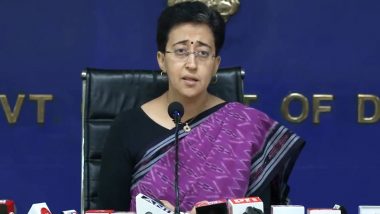New Delhi, August 25: The Central Bureau of Investigation (CBI) submitted before the Delhi High Court on Tuesday that Brijesh Thakur, who is serving his sentence in Muzaffarpur shelter home case, was convicted on account of commission of heinous offences where he systematically sexually, physically, socially and mentally abused minor girls.
The CBI, in its response submitted before the High Court on Brijesh Thakur's appeal challenging the trial court order convicting and sentencing him to life imprisonment in the case, also submitted that he misused government grants received at Balika Grih in Muzaffarpur.
"The trial court has found him guilty on many counts as mentioned in the judgment and has rightly sentenced him to imprisonment for life and imposed fine which is to be paid/used for rehabilitation of victim girls against whom he has committed heinous offences as mentioned in the judgment," the CBI submitted.
Advocate Rajesh Kumar, appearing for the CBI today, informed the court that the reply has been filed in the matter yesterday which didn't come on record.
After his submission, a division bench of Justice Vipin Sanghi and Justice Rajnish Bhatnagar adjourned the hearing on the matter for September 15 for arguments.
Earlier, the court had issued notice to the CBI on the appeal filed by Brijesh Thakur, convicted for sexually assaulting girls at Muzaffarpur shelter home, challenging trial court order convicting and sentencing him to life imprisonment.
Advocate Pramod Kumar Dubey appeared for accused Brijesh Thakur in the Delhi High Court. According to the convict's lawyers, the trial court had conducted hearing in the matter in a "hurried manner" and thus it had violated his right to a free and fair trial as guaranteed under the Constitution of India.
Thakur, through his appeal, has sought to quash the trial court order convicting and sentencing him, along with 18 others, dated January 20 and February 11 respectively. Thakur was the owner of the NGO called Sewa Sankalp Evam Vikas Samiti and managed the place where the incident took place.
"The hurried manner in which the trial was conducted by the Special Judge, (POCSO), Saket was a flagrant violation of inter alia the right of the appellant to a free and fair trial guaranteed under Article 21 of the Constitution of India and lawful applications and submissions/ requests made by and on behalf of the appellant were dismissed in a mechanical manner without due application of judicial mind with a view to somehow conclude the trial," Thakur's appeal said.
He further submitted that due to the pace at which the trial was conducted and the arduous hours which extended beyond normal court timings on a regular basis the appellant was denied his statutory and fundamental right.
The appeal also said that the trial court has failed to appreciate that a case relating to rape the prosecution must first and foremost establish that an accused is potent and thereby capable of committing the alleged act.
"In the present case neither the Bihar Police nor the CBI has conducted the potency test of the accused Brijesh Thakur and despite examining his wife did not place her statement under section 161 Cr.P.C. on record and thereby the prosecution has miserably failed to prove the first foremost and most important fact which is a pre-requisite in a rape case i.e. the fact that an accused who is charged with rape is, in fact, capable of committing rape," it added.
The Supreme Court had transferred the case from Bihar to a Delhi court and ordered the judge to complete it within six months, following which the trial court framed charges against 20 accused in the case.













 Quickly
Quickly






















